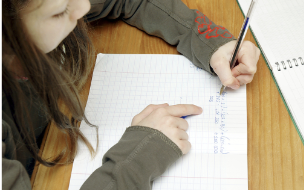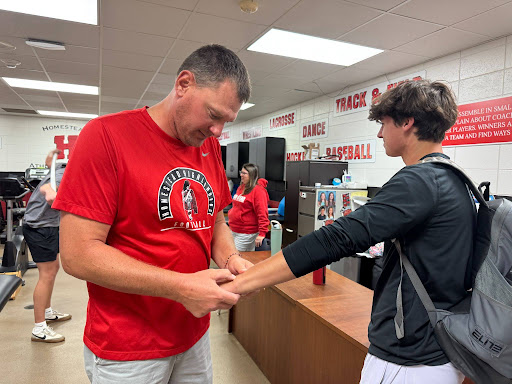Homework is a widely used learning tool at Homestead High School. Teachers and students share their opinions on the benefits of homework, and how to better manage the homework they give and receive.
Joseph Costa, English teacher, said, “I do think [homework it] beneficial or I wouldn’t assign it, which is why I don’t assign homework every night, and when I assign homework, it’s usually part of something bigger and never just busy work for that matter… I don’t give like a packet to do at night just to have students do something.”
On the contrary, Safiya Quryshi, sophomore, said, “[Teacher should] make it less, I think homework should be as less as possible, because you are at school for seven hours, you don’t need homework.”
To narrow down how to get students continuously doing homework, teachers and staff must discover what’s draining the kids.
An article titled “Does Homework Still Have Value? a Johns Hopkins Education Expert Weighs In,” by Vicky Hallett mentions “If homework assignments are always the same—10 math problems, six sentences with spelling words—homework can get boring and some kids just stop doing their assignments, especially in the middle and high school years.”
Due to the many similar homework assignments, students often find themselves stressed at times.
An article by Jeff Nilsson: “Are We Seeing the End of Homework” says, “when students were asked what they considered a primary source of stress in learning, 56 percent said ‘homework.’ Homework was viewed as a primary stressor more than taking tests or trying to get good grades.”
Maryam Mustafayeva, sophomore, seconds that by saying, “I get a lot of homework and I’m getting stressed out.”
As a solution for avoiding stress on students, an article from Point Loma Nazarene University “Should Teachers Still Give Homework,” explains that a “Duke University psychology professor Harris Cooper… stated that ‘a good way to think about homework is the way you think about medications or dietary supplements. If you take too little, they’ll have no effect. If you take too much, they can [hurt] you. If you take the right amount, you’ll get better.’”
To limit homework intake in one sitting, students suggest taking breaks and spending time to relax.
Quryshi shared strategies for managing homework: “I try to get my homework done, like most of it in class, so I don’t have that much at home, and I don’t get overwhelmed, and then I go home, and then I just do the rest of my homework, but I try to like take breaks in between, maybe like eat some snacks, and like maybe put on some music so I’m relaxed.”








